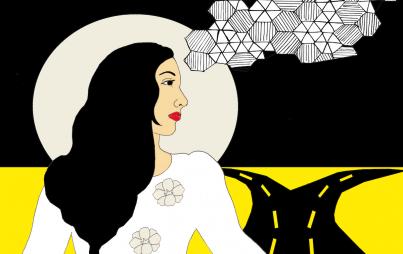
It is exceedingly difficult to come to terms with your own sexual identity, in any respect. While sexual exploration is by no means the taboo it used to be, it's still considered "alternative" by a huge portion of the population. We view it as something for those who “fit outside the norm” of monogamous heterosexual relationships.
In the face of this, owning one’s sexual identity is among the purest and most powerful forms of personal liberation. In reality, the only “norm” we should be putting forth is the right for each individual to define their own tastes and boundaries, in order to properly and comfortably carve out their place in the world.
From your number of partners to the genders they identify with, even to the decision to not engage sexually at all, these are all meaningful aspects of your identity that deserve to be approached with a gentle hand.
Unfortunately though, there are aspects of your sexual identity that exist outside your power and are instead crafted by the environment around you. Though you can work through and move past them to an extent, they will continue to shape how you're seen by the world, how you see others, and how you see yourself. This affects everyone differently, but it affects everyone nonetheless.
I'm 24 years old, and I've never been able to view myself as a sexual being. Though my confidence has improved greatly, I've never once been able to see myself as someone “sexually desirable,” though I know it to be true. This is due in large part to my history with childhood obesity, and the de-sexualization that comes hand-in-hand with the notion that fat people “just shouldn't exist.”
I was often told by both men and women in my life that no one would ever want me because of my size.
For me, sexual identity was an afterthought. By the time I'd reached puberty, I already felt completely incapable of seeing or treating myself as someone who could be desirable to those around me.
During a period in my life when self-expression and discovery were most important, my options in regards to my own style were severely limited. In a similar way that women's underwear becomes limited to bland nude colors as the sizes get larger, it's safe to say that menswear past a certain size definitely lacks imagination.
When none of the few options presented seem to represent the identity you're developing for yourself, you lose the ability to deeply explore that identity.
As I struggled to develop this relationship with my own body, it was reflected in my relationships with others. I was often told by both men and women in my life that no one would ever want me because of my size. As others my age started developing romantic and physical relationships, I was told that I’d “be a lonely virgin forever” because “nobody wants some fat gross dude.” After time, not only did I start to believe them, but that belief dissuaded me from exploring my sexual identity entirely.
I started to believe that things like love and sex existed only for the thin and conventionally beautiful—and that not fitting in meant I just didn’t deserve these basic parts of the human experience.
Keep in mind that by no means is this meant to vilify those who simply weren't attracted to me at my heaviest weight. I understand that attraction cannot be forced or controlled. There's nothing inherently wrong with not finding somebody attractive.
What is wrong, however, is cultivating a culture that dictates how sexual identities develop and thrive based on size. What is wrong is taking away the autonomy to decide when fat people are allowed to be sexual beings.
Ironically, my most vivid memory of this sort of erasure actually came about after I started losing weight. Beginning my weight loss journey in June of 2009, I came back to school that September nearly forty pounds lighter. Though I still had a long ways to go, the change in how I was approached became clear immediately. I was approached more kindly and gently than I’d been before and complimented on my changing appearance. This only continued as time passed, finally culminating when a girl in one of my classes decided to “call dibs” on me for “when I got skinny.”
In case that didn’t really sink in, allow me to reiterate:
Someone — completely unprompted — essentially tried to make a fucking reservation to date a version of me that didn’t yet exist. This is, in essence, something that happens to a lot of the fat community: being treated by those with more “socially acceptable” body types as though we should be grateful for any sexualization at all.
Particularly with fat women, fetishization is a persistent and dehumanizing issue. It can really mess with someone's personal sense of sexual identity. Instead of being allowed to exist as fully complex and sexual human beings, they’re relegated to being a tag in pornography. They’re seen as a guilty pleasure among those with “abnormal” sexual appetites, something to be viewed sexually in spite of their comparison to what we consider "the norm."
One of the unfortunate truths of being human is that we can never unlearn the things we learn. For better or worse, the knowledge we absorb continues to shape us, and the change it creates in us is something we can spend the rest of our lives trying to escape.
There are still mornings I look in the mirror and struggle not to tell myself that no one could ever want me. There are still evenings I ask my partner if they think I'm beautiful, and every time they say yes I find myself surprised, even though I knew the answer. I understand that this is a fight that will happen every day for a lot of my life, and that sometimes I will lose that fight, but that's okay. It doesn't matter if you win every day, what matters is that you continue fighting, even after the days you lose.
That nagging voice that tries its best to tell you that you aren't good enough? That is the result of your environment. What's more important is the effort you put into telling yourself that you matter. It's the resilience you use to assert your right to exist that shows your true value; everything else is just noise.








